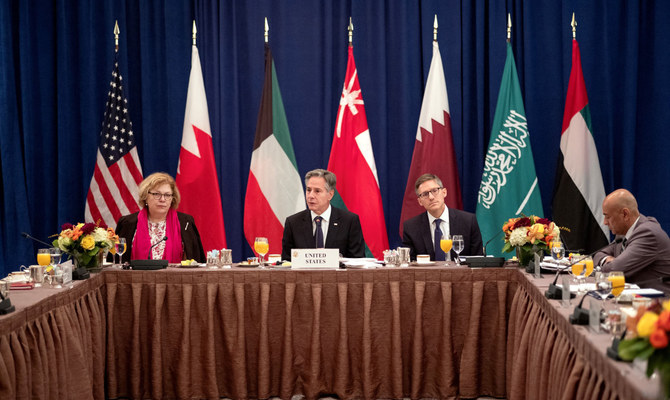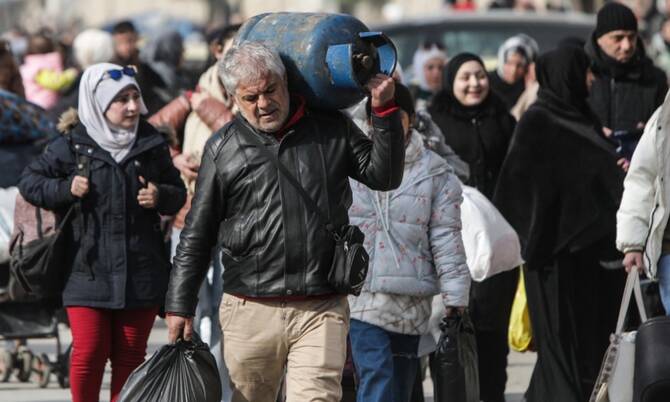NEW YORK: Gulf states’ building of a “more stable, secure and integrated region” could reap “genuinely transformational results” for the world, the US secretary of state said at a meeting on the sidelines of the 78th UN General Assembly.
Antony Blinken was speaking on Monday at a meeting with the foreign ministers of the Gulf Cooperation Council states.
US-GCC partnerships have “benefited people in the Gulf, and also people around the world,” he said.
Blinken highlighted the signing of an agreement at the G20 several weeks ago to create a rail, shipping, digital and energy corridor spanning the Indo-Pacific, the Middle East and Europe. Saudi Arabia and the UAE were among the major signatories of the deal.
The Partnership for Global Infrastructure and Investment reflects the US conviction that “a more integrated Gulf and a more integrated Middle East can deliver genuinely transformational results for the region and for the world,” Blinken said.
He also lauded the role of Saudi Arabia in forging a UN-led truce in Yemen, as well as the Kingdom’s partnership in offloading oil from the FSO Safer tanker in the Red Sea last month, which averted an environmental disaster.
Both the US and GCC remain committed to a two-state solution to the Israeli-Palestinian conflict, Blinken said, adding that Washington is working to advance normalization with Tel Aviv among countries in the Middle East.
The US “has invested in our relationships with you and with your countries, and we’re invested for the long haul,” he told the GCC foreign ministers.
Omani Foreign Minister Sayyid Al-Busaidi highlighted the GCC’s insistence on “welcoming a dialogue with everyone,” saying “substantive progress” can be built on the back of agreement and convergence.
He added that the GCC states intend to “take further steps” in enhancing the bloc’s relationship with the US.
GCC Secretary-General Jassem Al-Budaiwi noted the improvements that had been made in the relationship since the last meeting, which took place in Riyadh in June.
He listed the greatest regional challenges as “nuclear proliferation, threats to maritime security and freedom of navigation, and political instability and internal conflicts in Yemen, Sudan, Syria, Lebanon, Afghanistan and elsewhere.”
Al-Budaiwi added: “The Palestinian-Israeli conflict remains unresolved, with frequent flare-ups threatening peace and security, and preventing it from reaching its full potential.”
He said the GCC’s strategic partnership with the US “is at the forefront of our priorities, and this meeting underscores that fact.”
He added that there are more than 10 GCC-US working groups and task forces “covering areas such as integrated air and missile defense, maritime security, cybersecurity, military logistics, military training exercises, special operations, counterterrorism, trade, investment and other areas of cooperation.”
Al-Budaiwi said he hopes for further meetings of all working groups by the end of the year, as part of efforts to achieve common objectives in the realms of cybersecurity, military and defense capabilities.
















